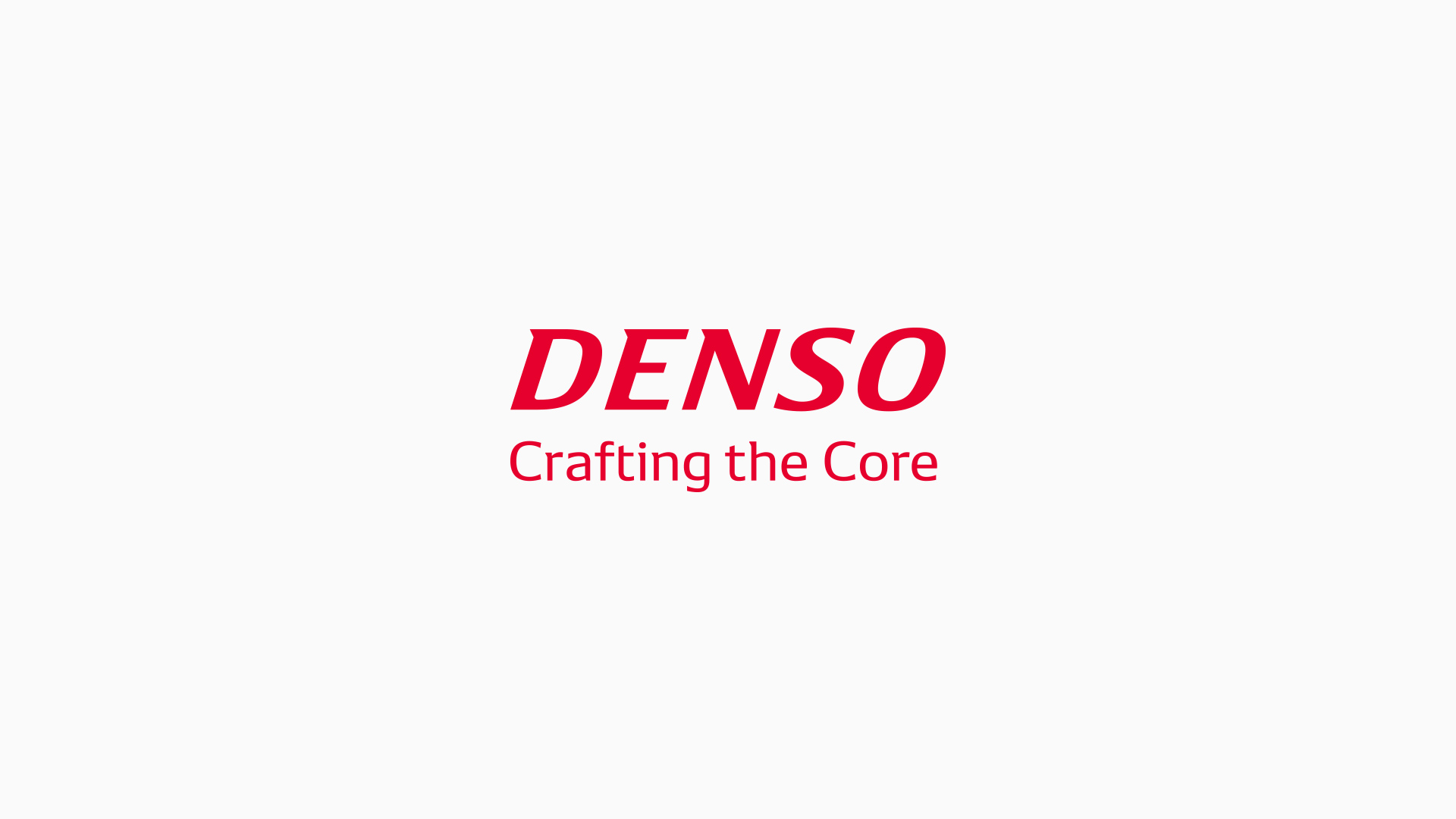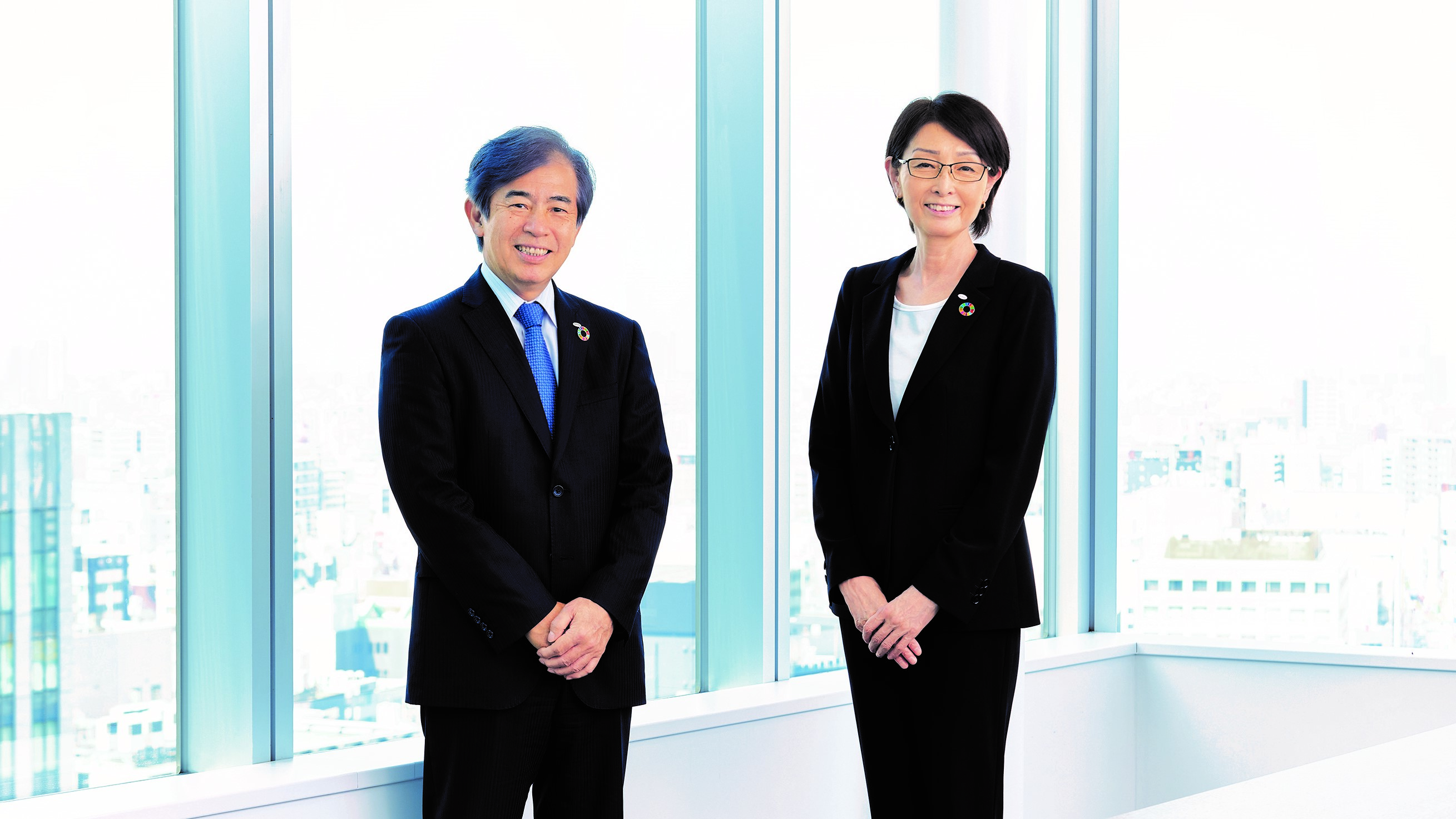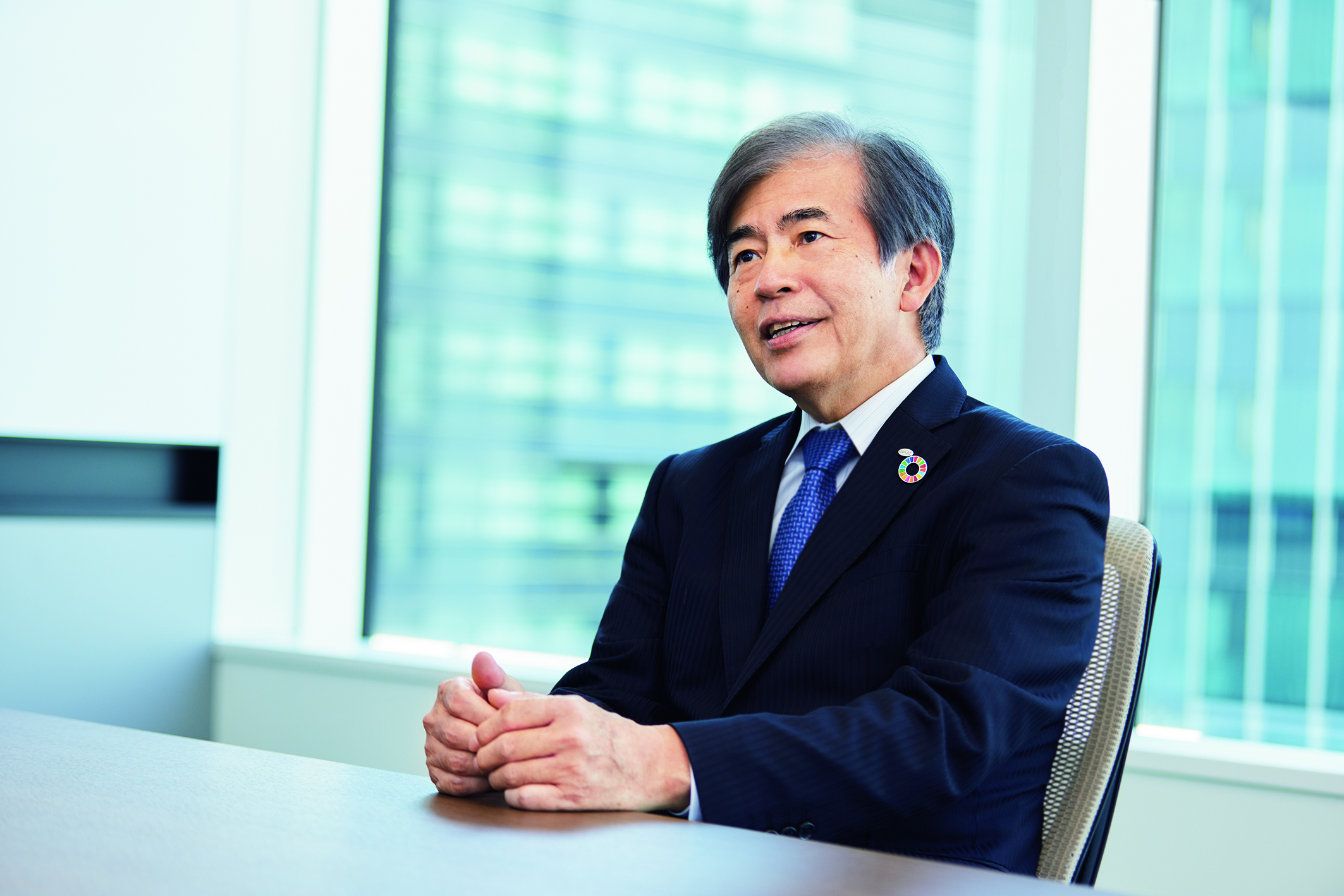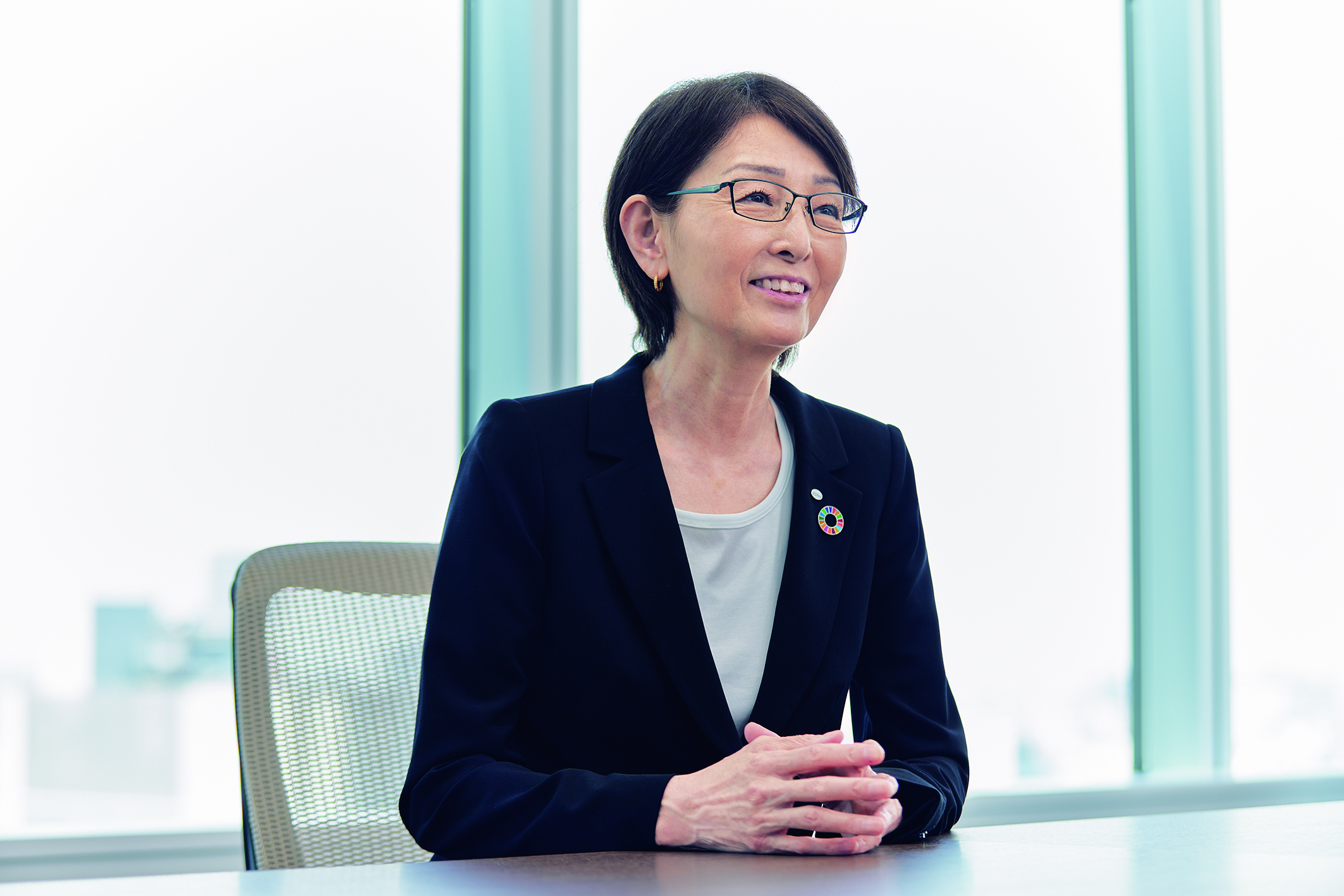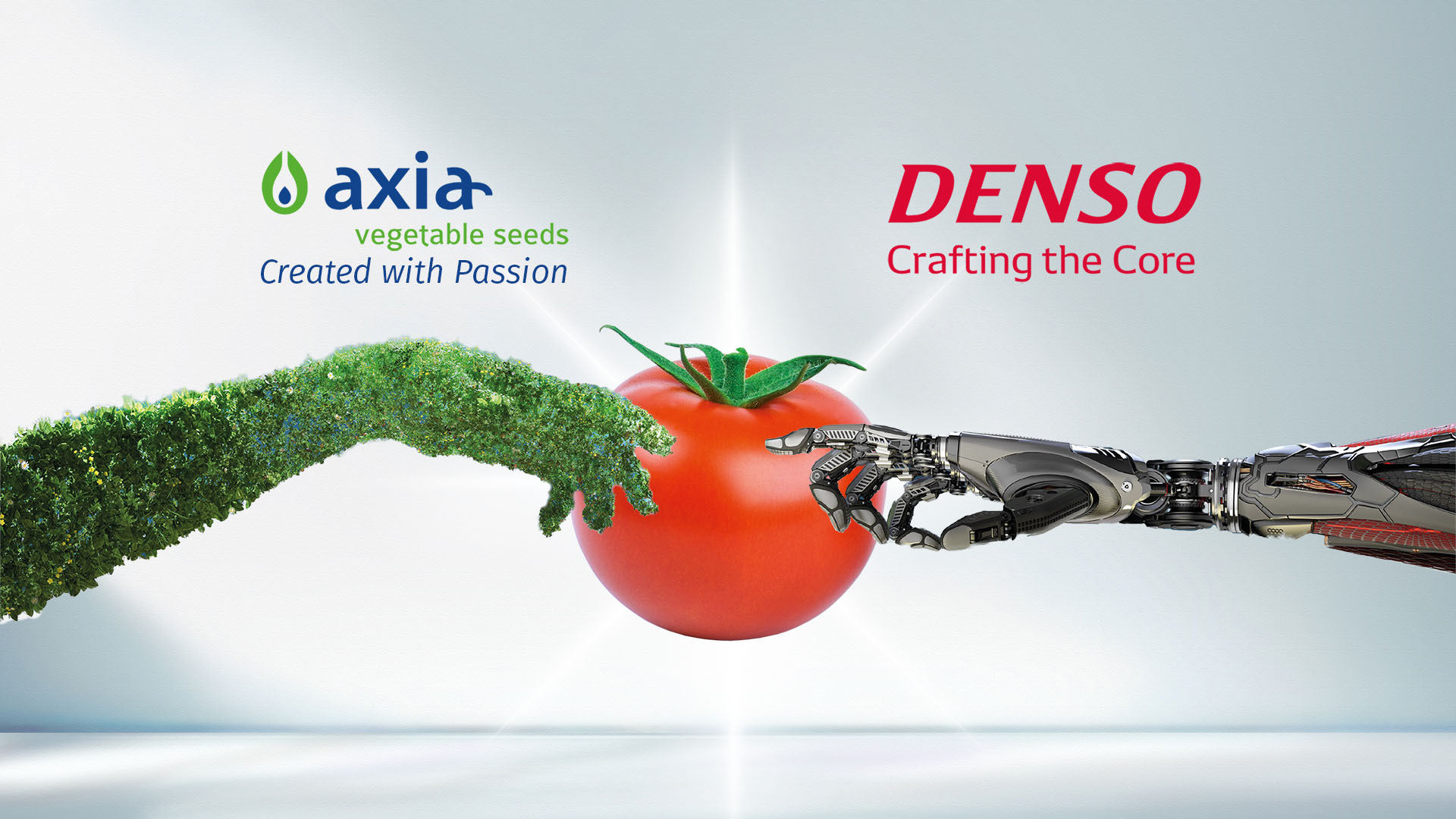Dialogue with the Outside Board Members
Transparent and Diverse Governance and Sustained Improvement in Corporate Value
Fiscal 2022 was a major turning point for corporate governance reforms at DENSO. We had an open discussion with outside Board members Shigeki Kushida and Yuko Mitsuya about their take on the Company’s initiatives and future issues.
-
Shigeki Kushida : Outside Board Member
Mr. Kushida has been serving as an outside Board member at the Company since 2019. He also serves as president and representative executive officer at Japan Securities Finance Co., Ltd., and has experience working at the Bank of Japan.
-
Yuko Mitsuya : Outside Board Member
Ms. Mitsuya has been serving as an outside Board member at the Company since 2019. She also serves as representative director of SORA Corporation and has a long history in the sports world.
Significance of Disclosing the Skill Matrix
Kushida DENSO is a company that has worked diligently to reform corporate governance. As a company with an Audit & Supervisory Board, DENSO strictly complies with the requirements of the Corporate Governance Code, separating business supervision and execution and emphasizing monitoring functions. For example, the Executive Nomination and Remuneration Council was initially an advisory body when it was established in 2016, but it was upgraded to a decision-making body in 2021, thereby giving more power to the opinions of independent outside Board members.
Mitsuya When I look at DENSO, I am impressed with its constant use of the PDCA cycle. Measures that did not work as anticipated after a year are changed without hesitation. At meetings of the Board of Directors, our opinions have more weight. This is what makes DENSO truly great, and indicates that the Company already had the groundwork laid for governance before adopting the Corporate Governance Code. With that said, I believe the Company still has some work to do in terms of separating supervision from business execution, in light of global standards.
Kushida The Company has recently disclosed the skill matrix of its members of the Board, and this is significant for two reasons. First, the skill matrix expresses what the Company desires for skill sets on the entire Board of Directors. In the manufacturing industry, knowledge of manufacturing is usually an important trait for managers to have, so the Board of Directors tends to have members with experience on the business execution side. On the other hand, outside Board members are expected to have knowledge about corporate management, governance, finance, accounting, and human resources.
Second, disclosing the skill matrix is a way to fill in any gaps between the way that management and investors think about the composition of the Board of Directors. I believe this is a dynamic area of thought that is influenced by changes around the world.
Mitsuya Ensuring diversity on the Board of Directors is also an important topic, but it is difficult to gain insight on diversity with only a skill matrix. To be appointed as an outside Board member, a candidate needs to have sufficient experience and be of a certain age, and such appointments tend to go to candidates with equal qualifications but hail from a different industry. In recent years, candidates are expected to have a market-oriented perspective of the external business environment, and due to the emergence of electric vehicles, the conventional wisdom for manufacturing cars has been undergoing a change. In order to rapidly respond to such changes, the Board of Directors needs a more fundamental type of diversity that goes beyond the advancement of women and foreign nationals, in my opinion.
Two Aims of Revising Board Member Compensation
Kushida One major aim of the revisions to the officer compensation system is to enhance incentives for inside members of the Board and focus their attention on medium- to long-term corporate value.
In order to enhance incentives, the ratio of basic compensation in overall remuneration has been reduced to 40%– 50%, while the ratio of performance-linked compensation is being increased. The ratio of compensation based on individual performance evaluations is also being expanded to ±20%.
For assessing corporate performance, the Company has introduced ROIC and sustainability scores as new metrics to complement consolidated operating profit. The addition of ROIC as a metric underscores management’s emphasis on capital efficiency. There is also an ESG element to the new system. This compensation system is designed to sustain growth in corporate value while being aware of the various stakeholders involved.
Mitsuya When I first saw the proposed changes, I thought they were sweeping changes. The strict evaluation system means that compensation can change dramatically based on results, and the addition of a non-financial metric is a radical move. The Company is asking for more than usual from its Board members. I believe it is a drastic move in the context of the business environment in Japan.
Kushida For this compensation system to work, it is important to get everyone on board. It will be necessary for management to share and visualize achievements and targets, and diligently review the results.
Mid-term Policy for 2025 Following Reborn21
Kushida Initiatives under Reborn21 were a precious opportunity to reassess current conditions in addition to quality issues. For example, DENSO must make an effort to improve management efficiency when making major investments in the future. It is also necessary to update workstyles and the nature of organizations in order to draw out the capabilities of the Company’s diverse human resources. I believe DENSO did a great job pulling everyone together across the Company to reinforce these foundations.
Mitsuya The larger a company becomes, the more the information tends to flow in one direction, from top to bottom. Most large Japanese companies are transforming their business structures in some way. Even though established core businesses generate most cash flows, the allocation of management resources tends to concentrate in future growth fields that have yet to show a return. Naturally, the people on the front lines grow dissatisfied with this situation. DENSO is not immune to this problem, which is peculiar to transitional periods of companies.
In this sense, Reborn21 was ultimately implemented at the best possible timing. While taking thorough measures to prevent the spread of COVID-19, the Company created many opportunities for discussion despite the pandemic, and employees sounded out their opinions. Although quality problems should never happen again, I think the whole situation may have ended up being beneficial for the Company.
Kushida In light of these outcomes, DENSO created the Mid-term Policy for 2025. Its broad array of initiatives are generally aimed at reforming the business portfolio to become carbon neutral. All that remains to be done is to translate these aims into specific fiscal year targets and quickly carry out measures to achieve them.
Mitsuya This new direction must also take into account the views of final consumers. Even if the Company advances DX projects, for example, consumer data forms the basis for these projects. Utilizing data and taking a B2C perspective, business might flow in a different direction than before. Human resources are what drive business forward. I look forward to seeing more results from DENSO’s human resource strategy for hiring and training personnel.
Kushida Looking ahead, growth at DENSO will be driven by people who are aware of problems and have an optimistic outlook for the future. It is important to train people who can take advantage of this transformative period as a once-in-a-century opportunity, and to create organizations that allow these people to freely take on new challenges.
Mitsuya DENSO is a supporter of various sports, and there is meaning here as well. Through sports, athletes around the world brighten the spirits of people by always taking on challenges. I believe this will have important implications for DENSO’s human resource development.
Toward a New Stage of Corporate Governance
Kushida New technologies cannot become a reality through technological potential alone. For example, there are many factors in play that affect the viability of self-driving cars, such as roads (infrastructure), transportation rules (laws), and people’s awareness of traffic safety. Making selfdriving cars a reality means that various changes must be made in society. Automakers and auto parts makers need to pay attention to external trends, and proactively increase their partners as a prerequisite to improving their corporate value.
Mitsuya Effective knowledge and great ideas often come from the outside. Instead of relying on other people to peer outside for knowledge and ideas, it is important for each and every employee to build their own networks of relationships. Such efforts help people themselves grow and can lead to the maximization of corporate value.
I think that DENSO can occasionally be a little too serious about this point. It is not necessary for DENSO to go out of its way to be considerate to outside officers. Why not take advantage of the extensive knowledge and networks of outside officers? I think DENSO should not hesitate to use all of our knowledge.
Kushida DENSO’s corporate governance has entered a new stage where it can actively explore the shape of management and corporate governance that will lead to future growth. Here, it is important to have more discourse internally and externally without reservation. I think that everyone should take advantage of opportunities to communicate more and be more proactive in DENSO’s head office.












